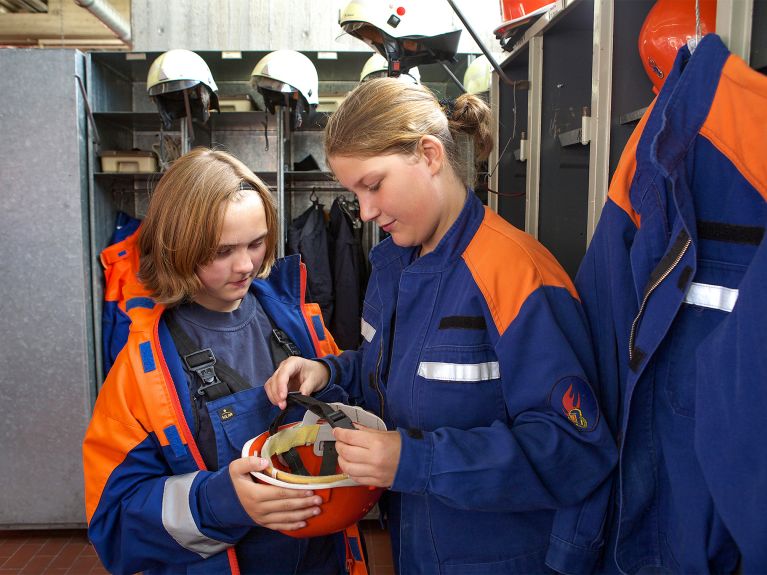Committed and well-networked
They pitch in and want to help shape the future: many young people are active on social and environmental issues. An overview.

Everyone has heard about the young people who demonstrate with Fridays for Future for more climate protection. But young people’s commitment is not always clearly visible on the street. Many young people in Germany are active as volunteers or online.
Selflessly doing good
Whether it is as a member of a voluntary fire service or in a sports club, Germany is a land of volunteers. And this also and especially applies to young people. A survey by the BAT Foundation for Future Studies found that roughly 30% of young people in Germany engaged in voluntary work in 2018, primarily in clubs and associations. Alongside the traditional involvement in sports clubs, however, voluntary activity in environmental organisations is becoming increasingly important.
Nature conservation is the supreme discipline
The desire for social and ecological change is most strongly entrenched among young Germans. That was the conclusion of a 2018 study by the Federal Ministry for the Environment, Nature Conservation, Building and Nuclear Safety (BMU). It found that 17% of active young people were involved in nature conservation or environmental protection groups and 14% in human rights groups. However, the Internet is increasingly taking the place of this form of active involvement within a group. Above all, it acts as a platform where young people can network, exchange views and organise.
Using the Internet to make the world a better place
Whether they are collecting donations, launching petitions or organising demonstrations, young people are ideally networked. Roughly 30% of them have already taken part in an online campaign, and as many again can imagine doing so in the future. These findings were shown in the BMU study. Organisations are improving their reach and reputation by using social media. They can significantly increase youngsters’ participation in campaigns online, because Internet activities fit in with young people’s communication style.
Political activity
Although they are primarily active on social and ecological issues, few young people see working within a political party as an option. Only some 11% consider it very important to engage in political activity, while twice as many act in an environmentally conscious way. Social-ecological challenges are of primary concern to many young Germans. According to the BMU, however, they are increasingly rarely looking to etablished political parties for answers to social problems and climate change.
You would like to receive regular information about Germany? Subscribe here:


